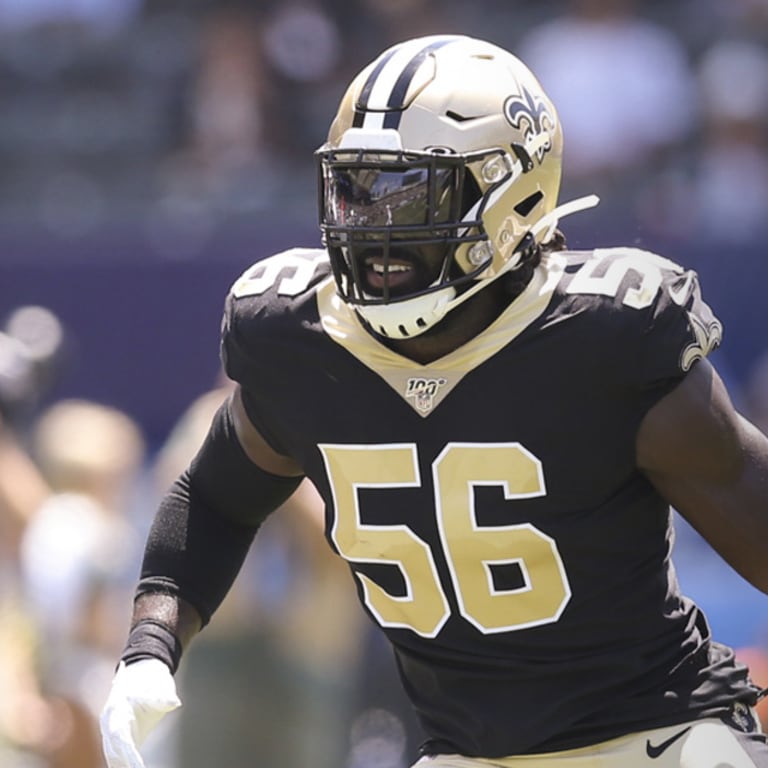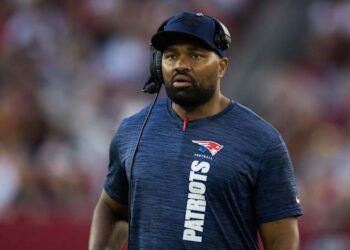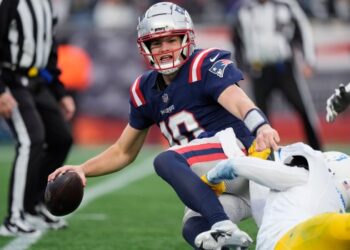By: Zachary Draves
A new documentary that exposes the American criminal justice system as a racial caste system features a current NFL player who has first-hand experience with how injustice operates.
Demario Davis, linebacker for the New Orleans Saints, is one of many sharing their stories in the Brave New Films production Racially Charged: America’s Misdemeanor Problem directed by acclaimed filmmaker Robert Greenwald.

(Courtesy: Youtube)
The film examines how misdemeanor laws are systematically designed to continue with the institution of slavery through various policing and sentencing tactics.
During the Reconstruction era when black people started to attain positions of power and status after slavery, white southerners revitalized the misdemeanor system to control and criminalize black existence.
They did so by arresting black folks for petty offenses, charging them with fines they couldn’t pay in order to lock them up, and then the private industry would turn a profit from their incarceration and forced labor.
These laws became known as the “Black Codes”.
This also resulted in what became known as convict leasing which allowed plantation owners and in many cases, corporations, to lease incarcerated people from the state government or county government for forced labor.
In other words, it was slavery by other means.
Those mechanisms helped shape the criminal justice system as we have come to know it and are still prevalent in the present day.
According to the film, over 13 million people are abused by the criminal justice system and are disproportionately BIPOC.
In the film, you have various narratives from those who had first-hand experiences with these injustices.
Demario shared how during his freshman year at Arkansas State he and his teammate were caught shoplifting groceries from a local Walmart.

(Courtesy: The Advocate)
They were both arrested and their bail was $10,000.

(Courtesy: Youtube)
This is a clear example of the very related issue of the exploitation of black college athletes who generate billions in revenue for the universities but don’t see a penny in return for their free labor.
Director Robert Greenwald knows full well the power of someone like Demario sharing his story.
“It was sobering. It was part of a context with people with high profiles and average people who share the common denominator of systemic racism” he said.
Today Demario works with the NFL Players Association on criminal justice reform advocacy.
(Courtesy: New Orleans Saints)
For Robert, he hopes this film will serve as a catalyst to continue the push for long-overdue systemic changes when it comes to race.
“It will be a tool of change that will activate and compel other people to become activated” he said.
“It will be a failure if people don’t take action.”
Too many times when we reach moments of critical mass and we feel as though we are progressing we easily slide back into a state of complacency.
If the murders of George Floyd, Breonna Taylor, Elijah MClain, Rayshard Brooks, Daunte Wright, and countless others, aren’t enough to force these long-overdue remedies, then what did the summer of 2020 do?
This film reminds us of what is left undone.
It is not a question of skill, it is a question of will.
Do we have the will?
The full documentary can be found at https://www.youtube.com/watch?v=Bm2PxE0HMr4


 NFL
NFL







